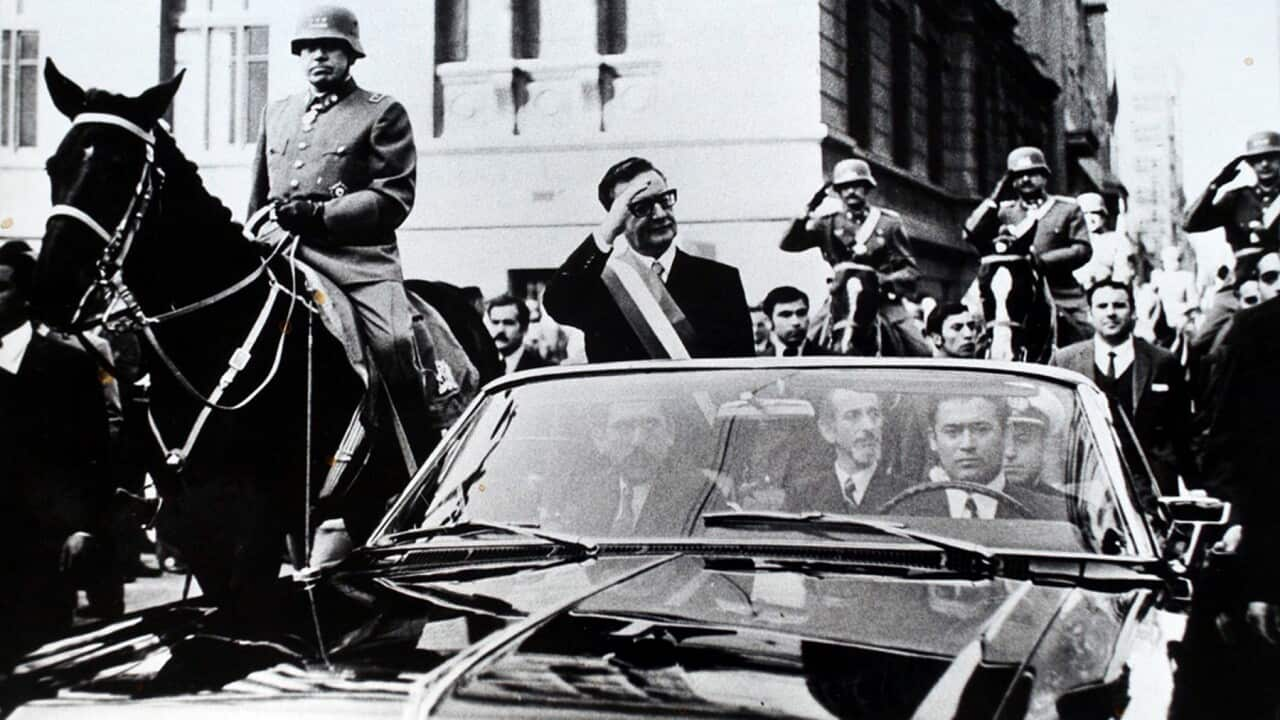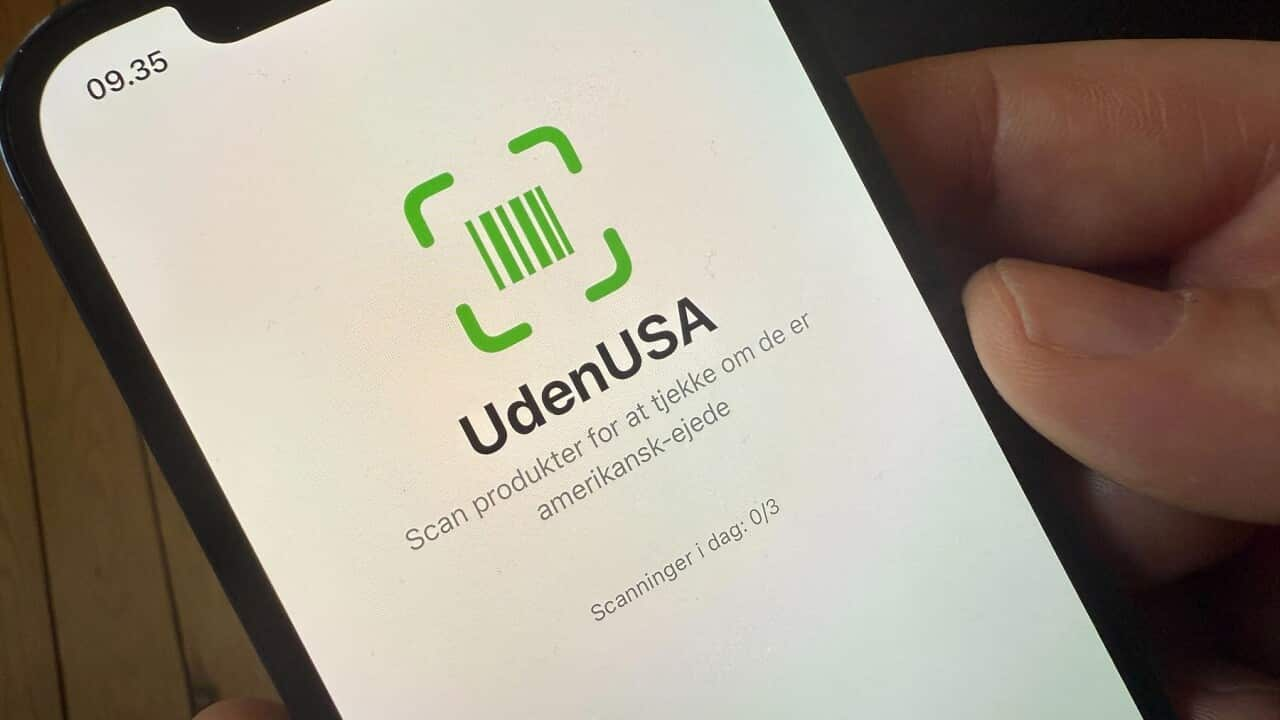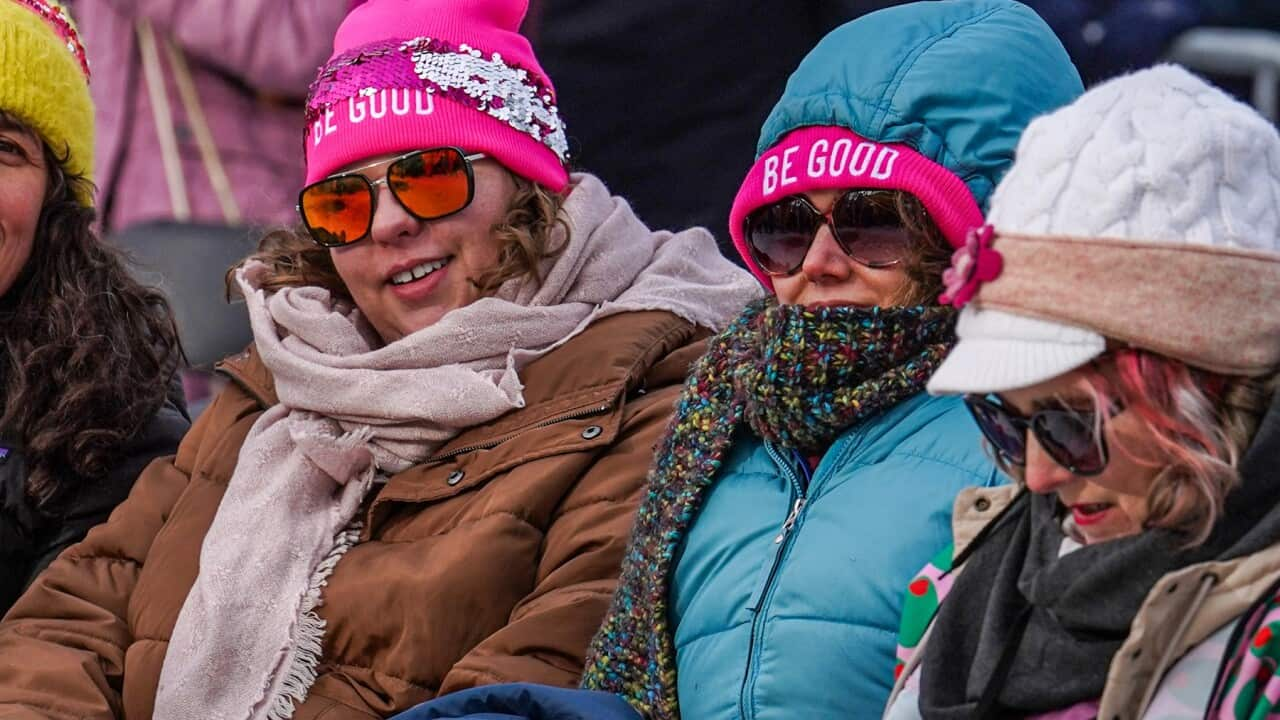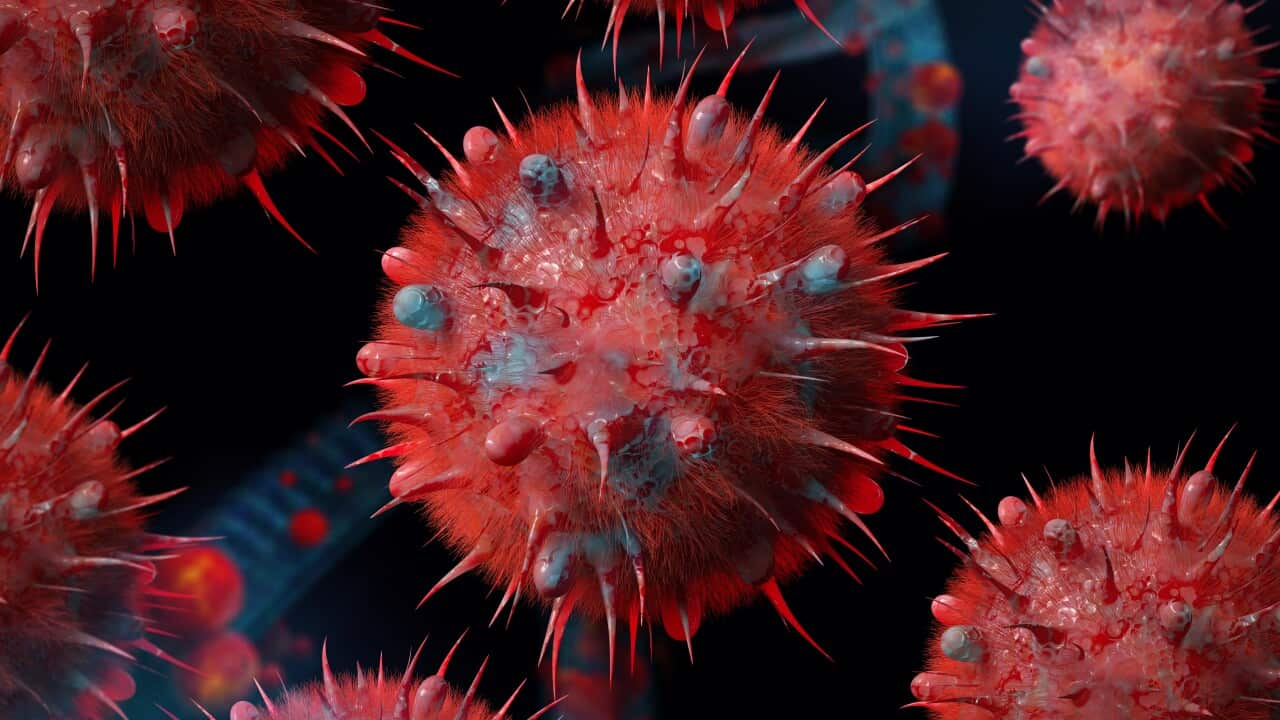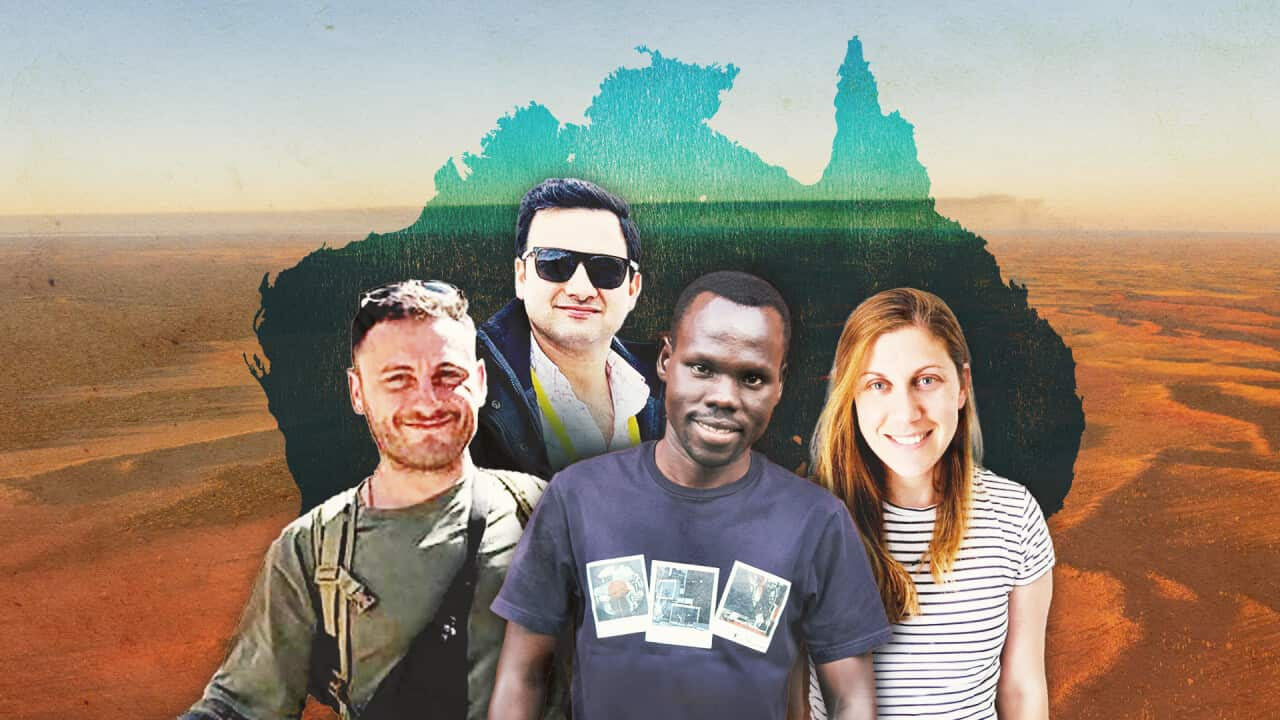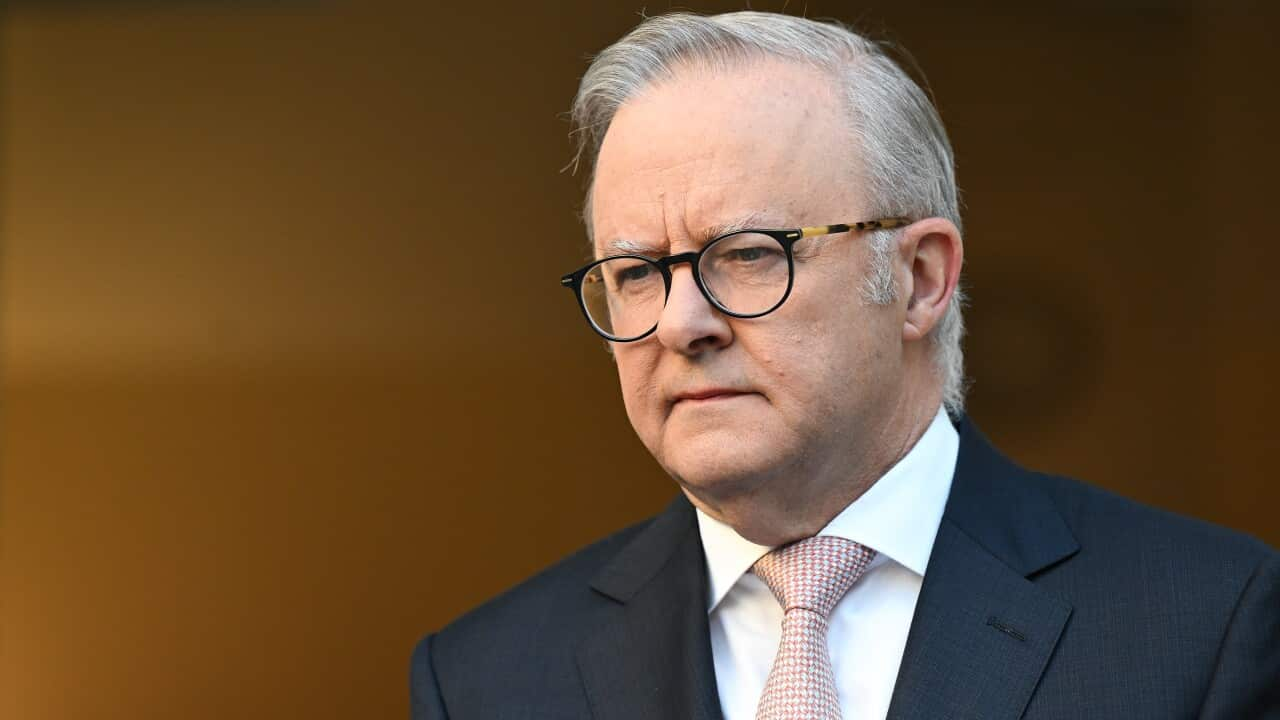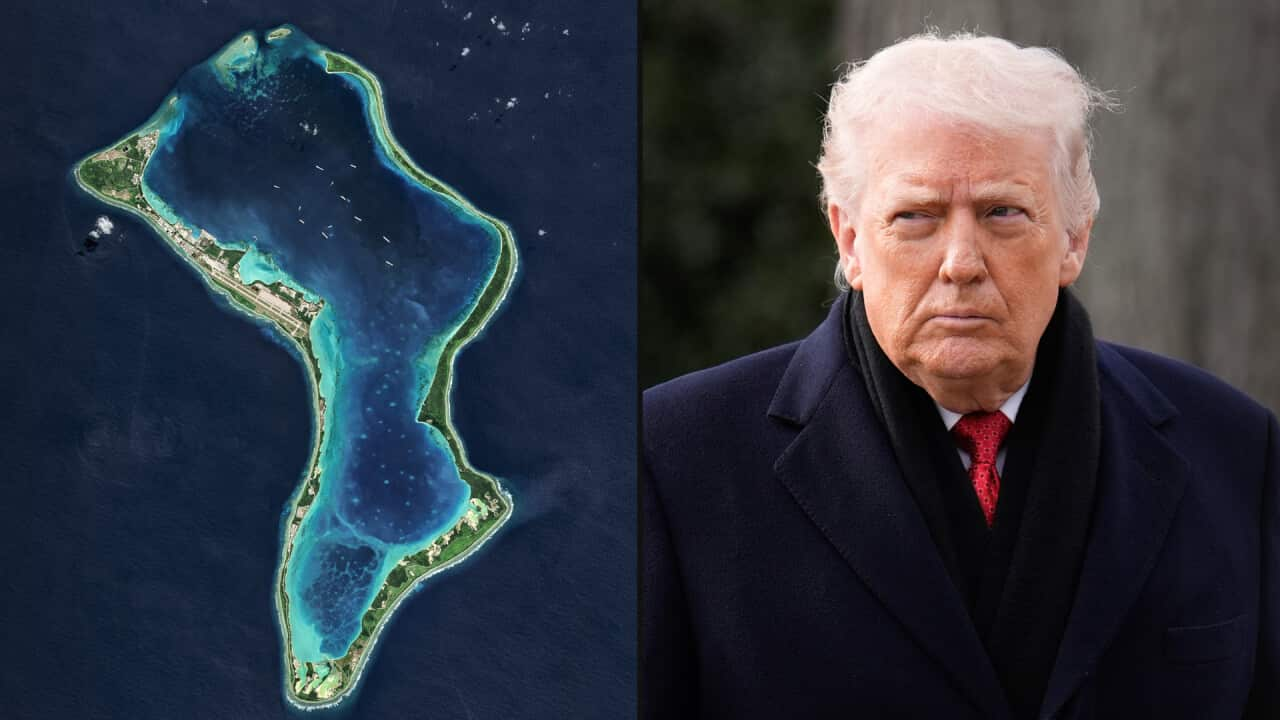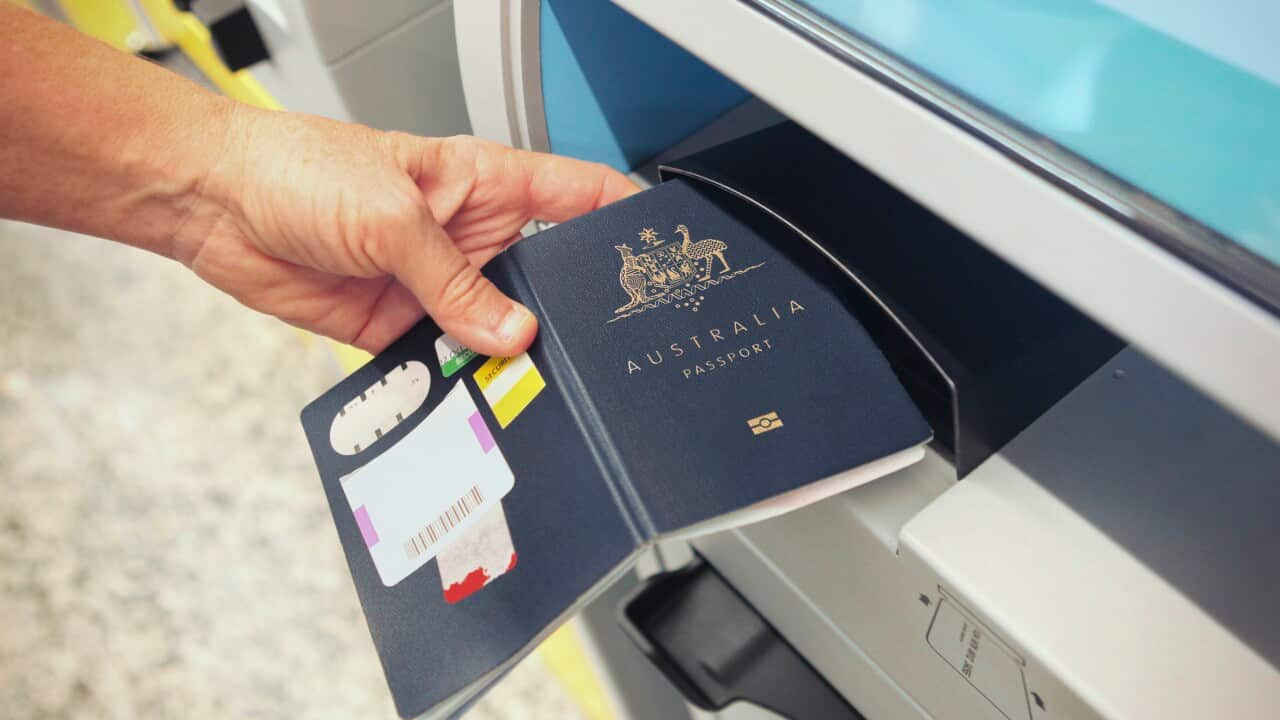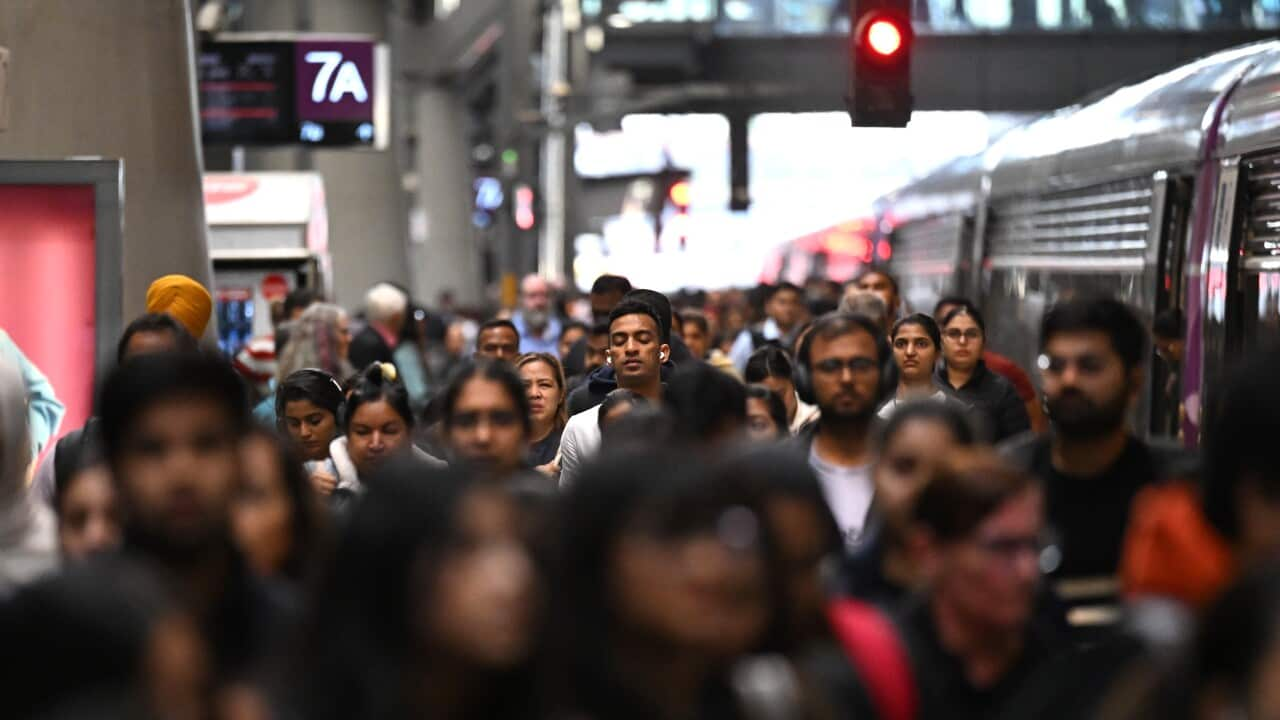Listen to Australian and world news, and follow trending topics with SBS News Podcasts.
TRANSCRIPT:
September 11 is a day of painful memories for those who fled Chile's regime.
Paula Sanchez is one of the thousands of Chileans to resettle in Australia, but with her, she carried unspeakable trauma.
"I didn't even tell my parents for a while until we came to Australia.. I was put in a bed, it was like a metal bed, and they had needles. But I was raped by four men that I can count. I couldn't see, but I only remember the smell. They smelled horrible."
Members of Chile's secret police were waiting for Paula at her home.
She was a 19 year-old activist in her second year of university when she was imprisoned and tortured.
"I think the worst part of it is not knowing if you'll come out of it or not, not knowing if you'll be one of the many thousands and thousands of people that were disappeared and killed. I think many things went through my head. The thing that was very strong in my head is that I would never give anybody up and I would never say something to compromise anybody else."
In 1973, the opposing Cold War ideologies exploded into violence on the streets of Santiago.
The air force bombarded its own presidential palace, where troops loyal to Salvador Allende made their final stand.
In an address to the nation, the president declared freedom would one day return.
"Workers of my country, I have faith in Chile and its destiny. The great avenue through which free men pass will open once again, to build a better society. Long live Chile. Long live the people. Long live the workers."
They were ultimately Allende's final words.
The coup came during a wave of military dictatorships in the region.
The intelligence sharing network between Chile, Argentina, Uruguay, Paraguay, Brazil and Bolivia, with the backing of the United States, became known as 'Operation Condor'.
It's unclear if Washington played a direct role in Chile's coup, but documents show how the CIA carried out a 'covert action program'.. to weaken the Allende government, financially support opposition parties, and funnel money to media organisations, to rally the public against the president.
Lus Riquelme is another Chilean refugee now living in Australia.
He says the events of September 11, 1973, have had lasting impacts.
"Now the discourse is that democracy was destroyed. But people forgot that not only was democracy destroyed. A project of the people was destroyed, a project of popular democracy, a project of transformation of society. That's the thing we lost."
Mr Riquelme was targeted for organising protests in Chile, which he continues to do in Melbourne.
He and many others in the Chilean community have for greater transparency around Australia's role in the coup.
Professor Clinton Fernandes from the University of New South Wales has been lobbying for years, to have documents declassified showing Australia's involvement.
"We know that ASIS, the Australian Secret Intelligence Service, set up a safe house in Chile in order to act as a go-between between the CIA and the Chilean secret intelligence in order to help overthrow the democratically elected government of Salvador Allende."
Professor Fernandes successfully lobbied to have a cache of documents declassified in 2021, showing ASIS was in Chile before the coup.
But they're heavily redacted.
They show how Prime Minister Gough Whitlam - at pains not to embarrass the CIA - ordered the station to close in 1973.
What they don't show, is what ASIS agents were doing there, or how they may have collaborated with the United States.
With the 50th anniversary of the coup approaching, Professor Fernandes is calling for one thing.
"Full declassification, with the sole exceptions of the names of the agents that were involved. They should still be protected. We should still have a spy service. We should still have the ability to protect our secrets and to assure the public that we can take action independently if we want to. The names of our agents should definitely be classified, even now. But what they did should not be. That can be done by redacting it. If they were involved in torture, abduction, murder, then that should definitely be disclosed."
SBS News asked the office for Foreign Minister Penny Wong, who is the minister responsible for ASIS, whether more information may to come to light.
A spokesperson responded saying the National Archives is the custodian of government records, and has the responsibility for providing access.
The National Archives did not respond to SBS' request for comment.
Paula Sanchez now works as a senior lecturer in nursing at Western Sydney University.
Her work is no doubt inspired by her experiences from 50 years ago.
"So in my nursing career, it's about caring, it's about looking after people, no matter where they come from and no matter what they believe. If they have different beliefs to what I have, I will never treat them bad."
If you or someone you know wants to talk about sexual assault or harassment, family or domestic violence, call 1800RESPECT on 1800 737 732 or visit www.1800RESPECT.org.au. In an emergency, call 000.
Griefline also provides confidential support on 1300 845 745 and via griefline.org.au
